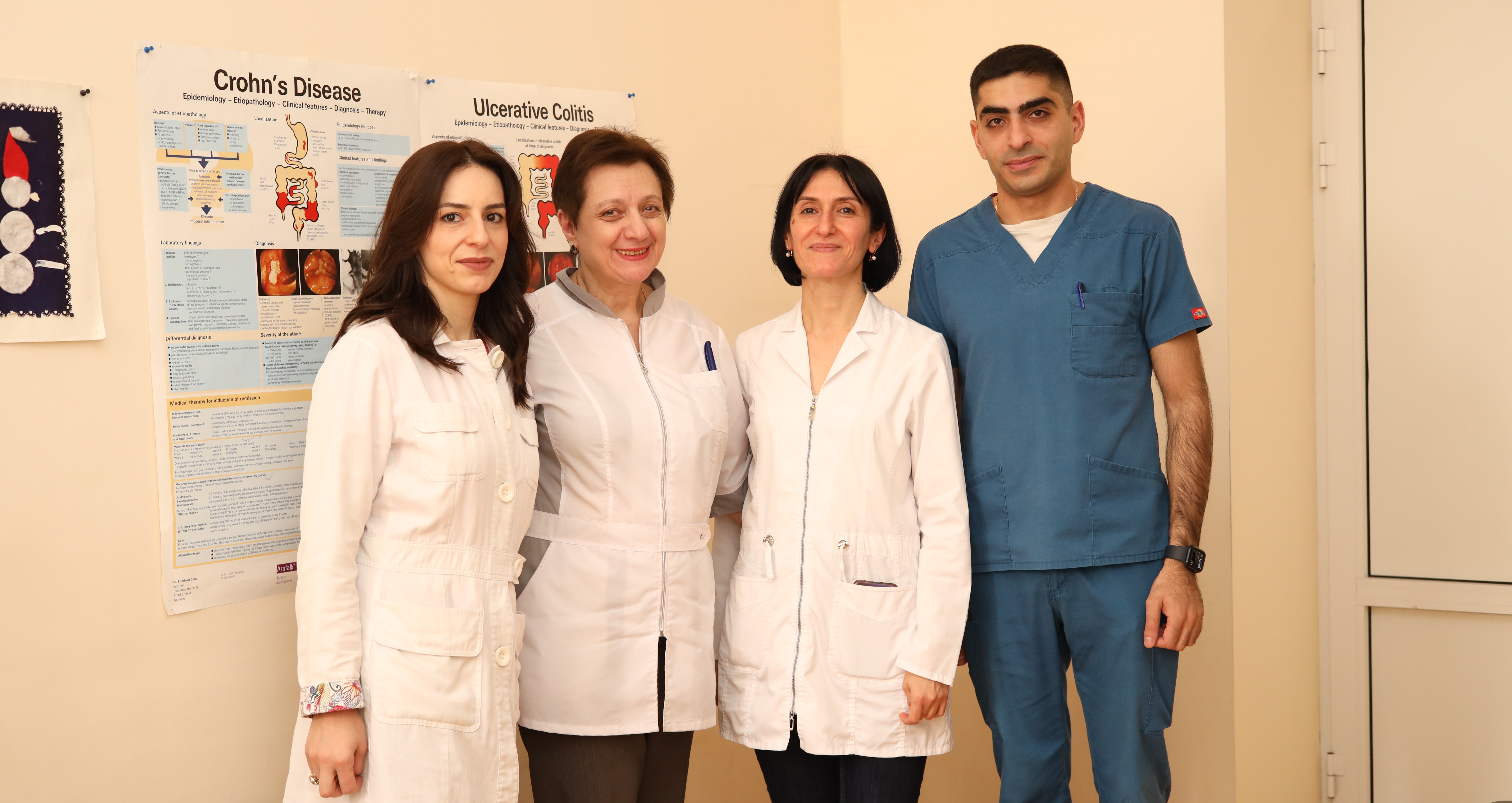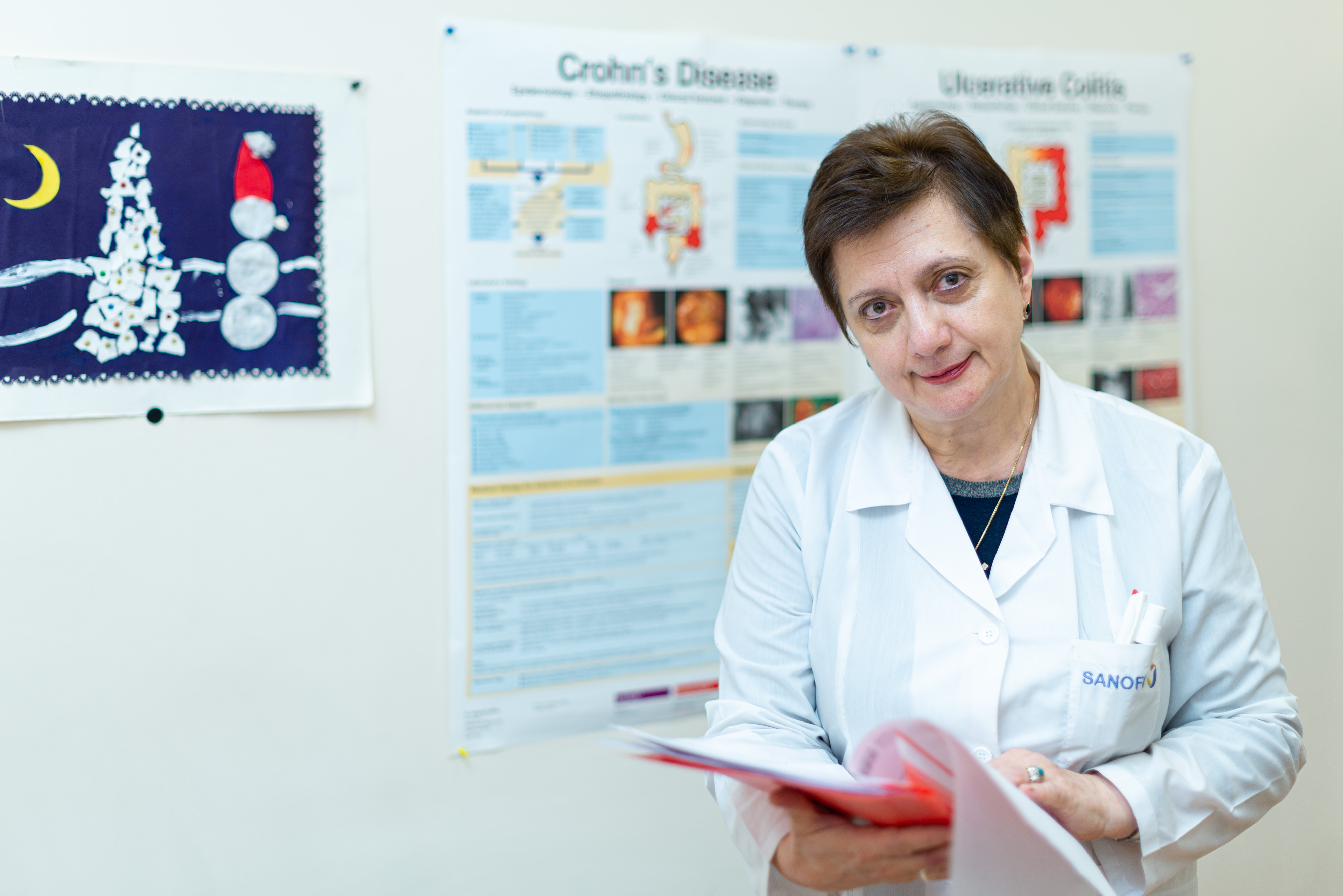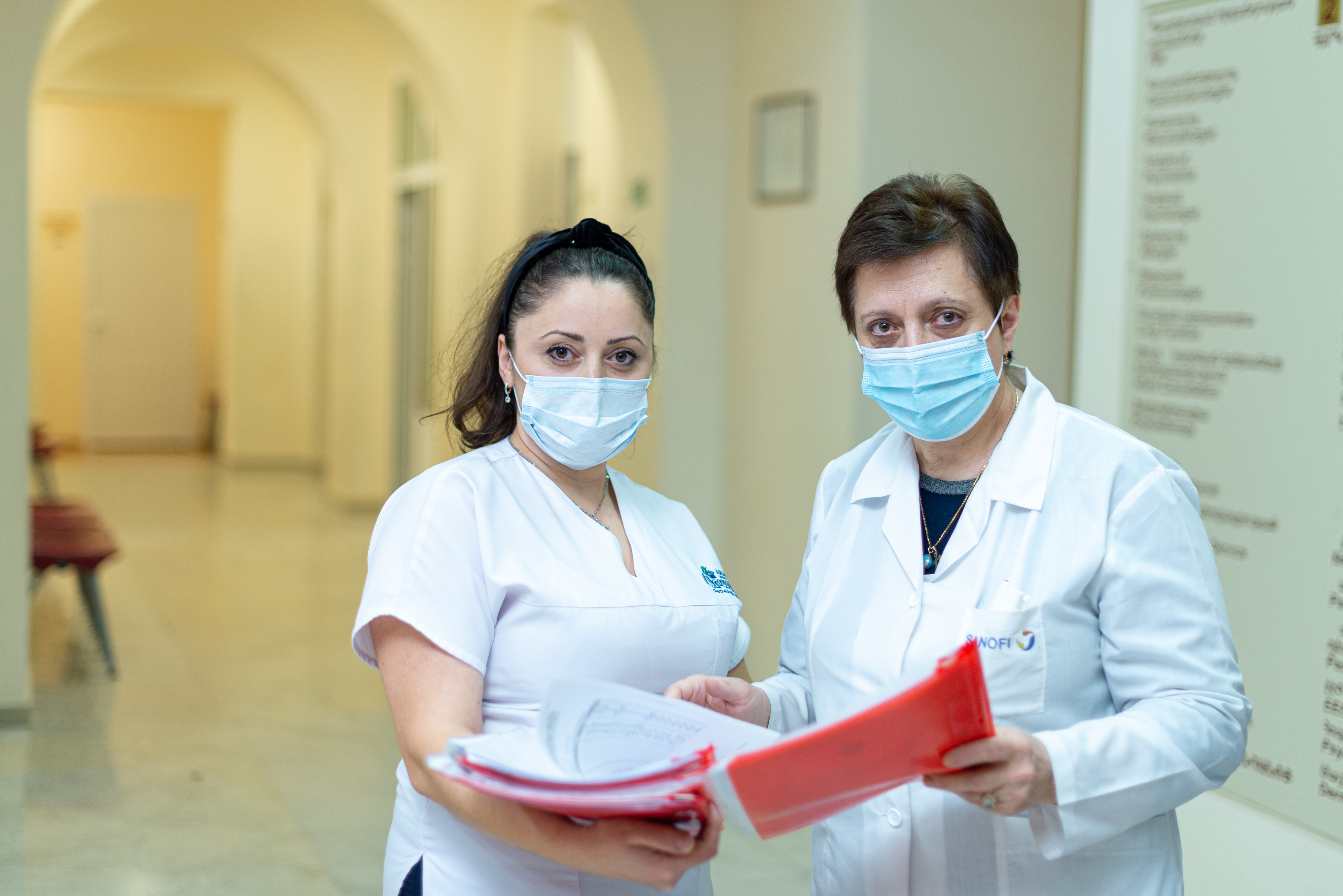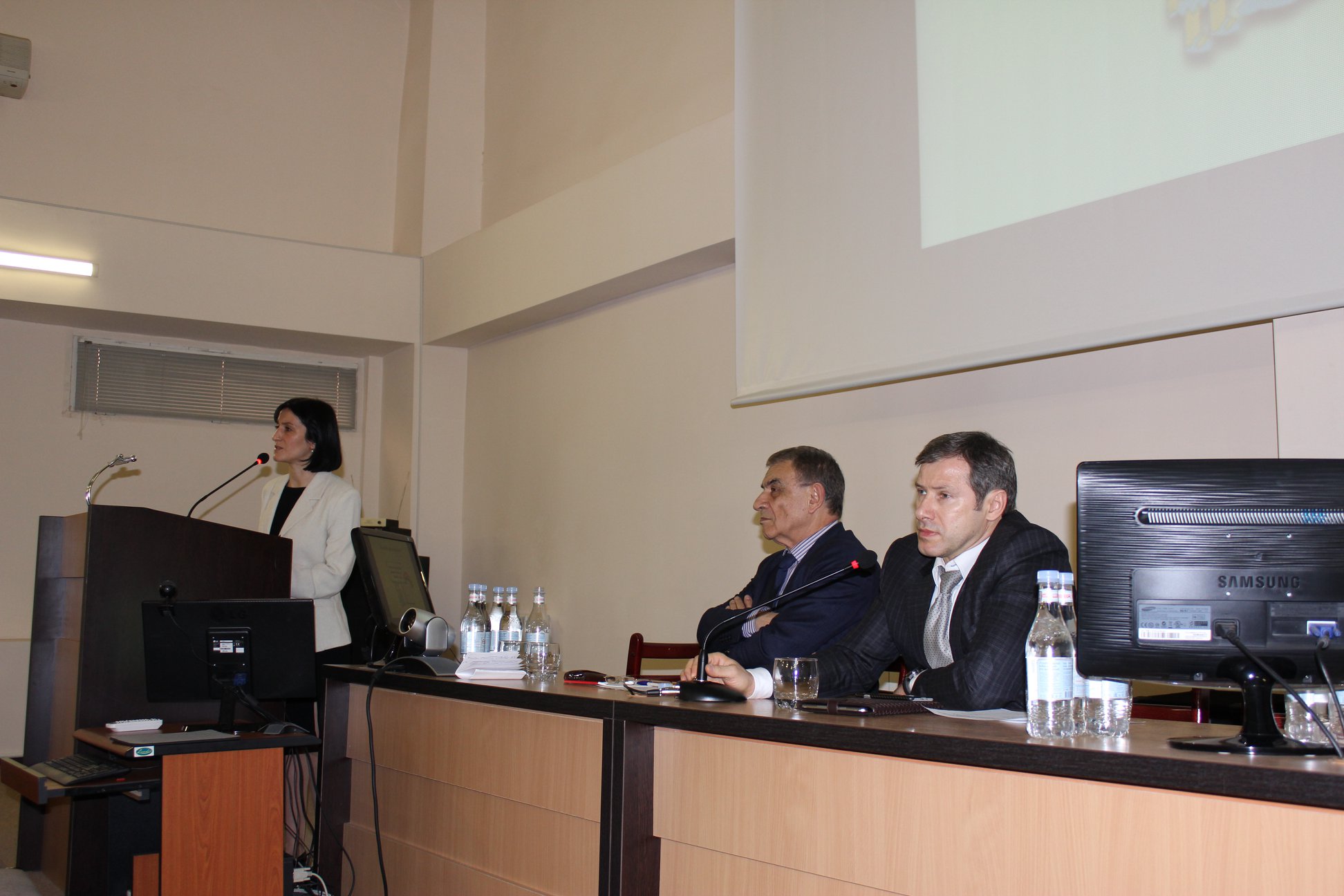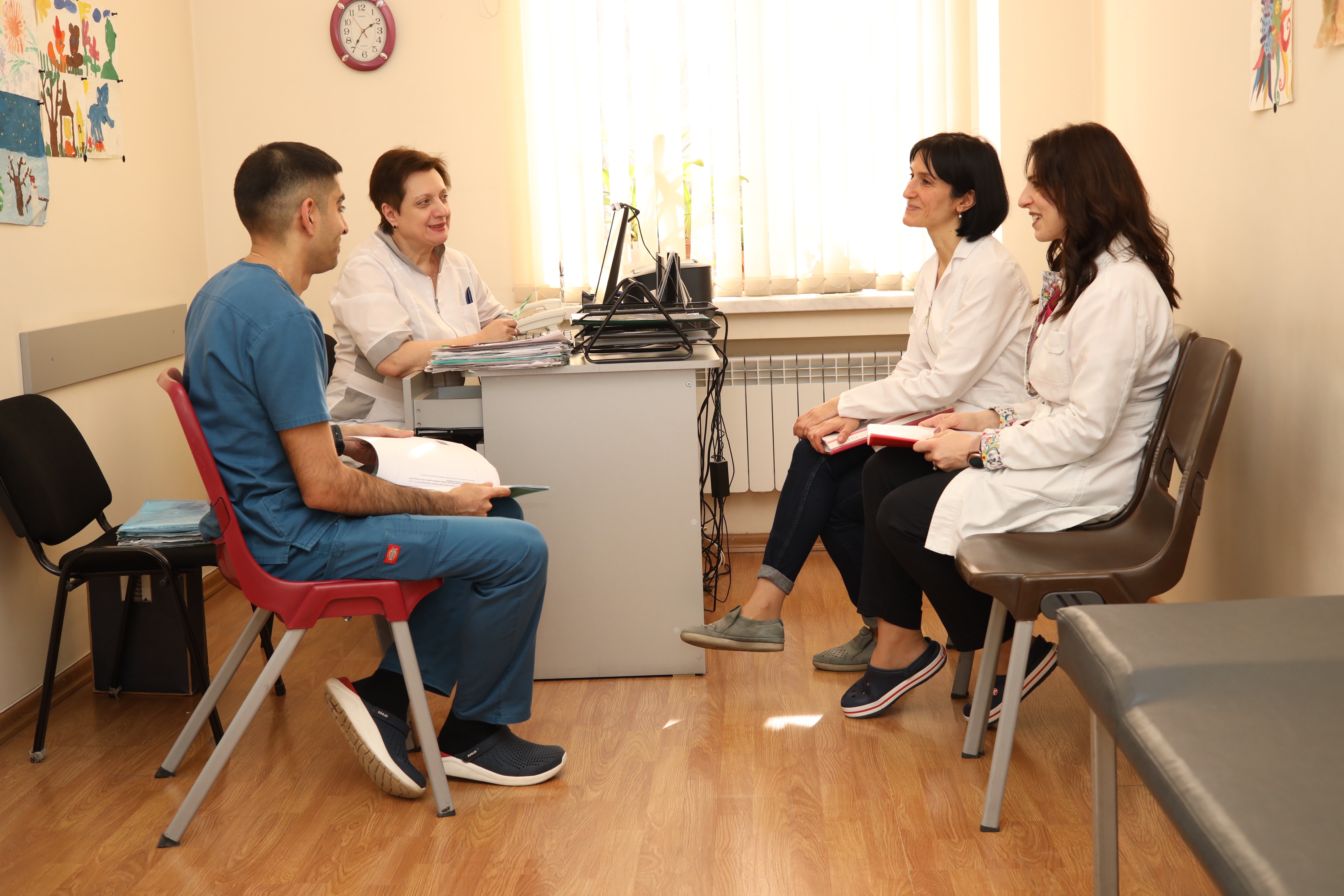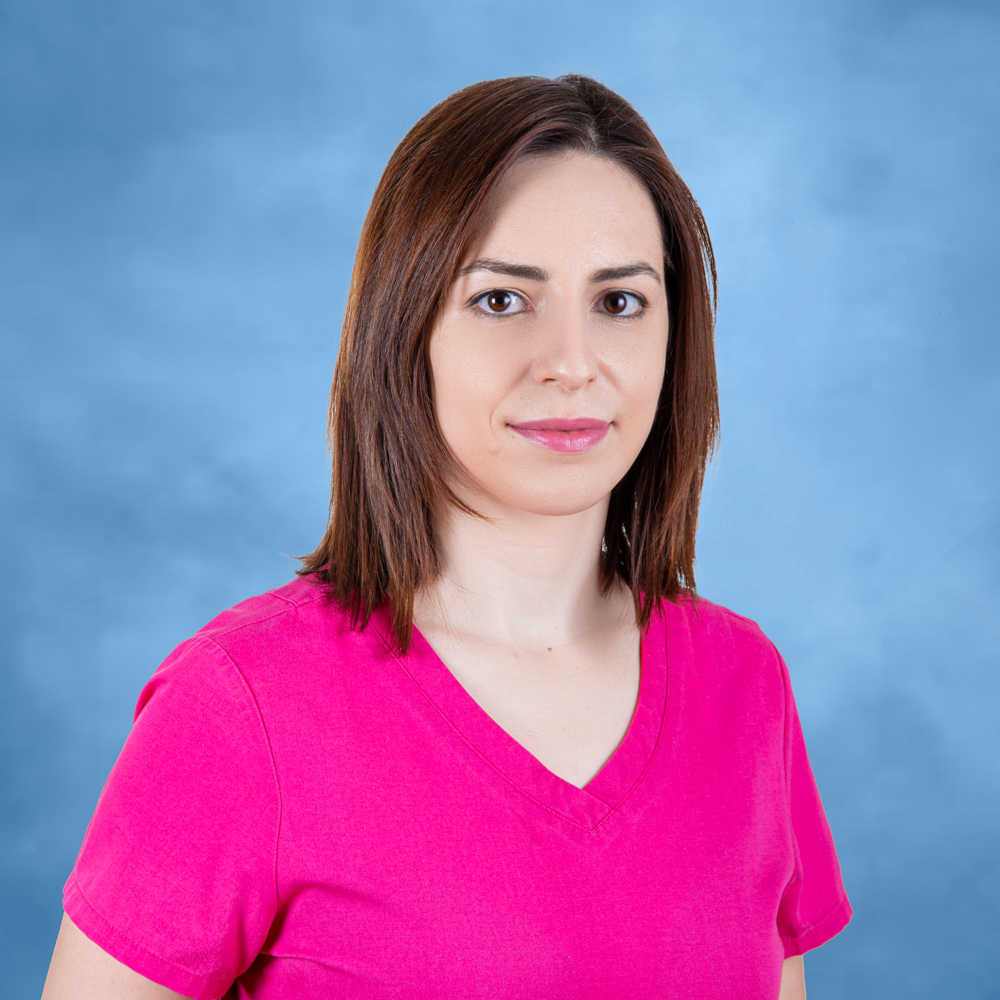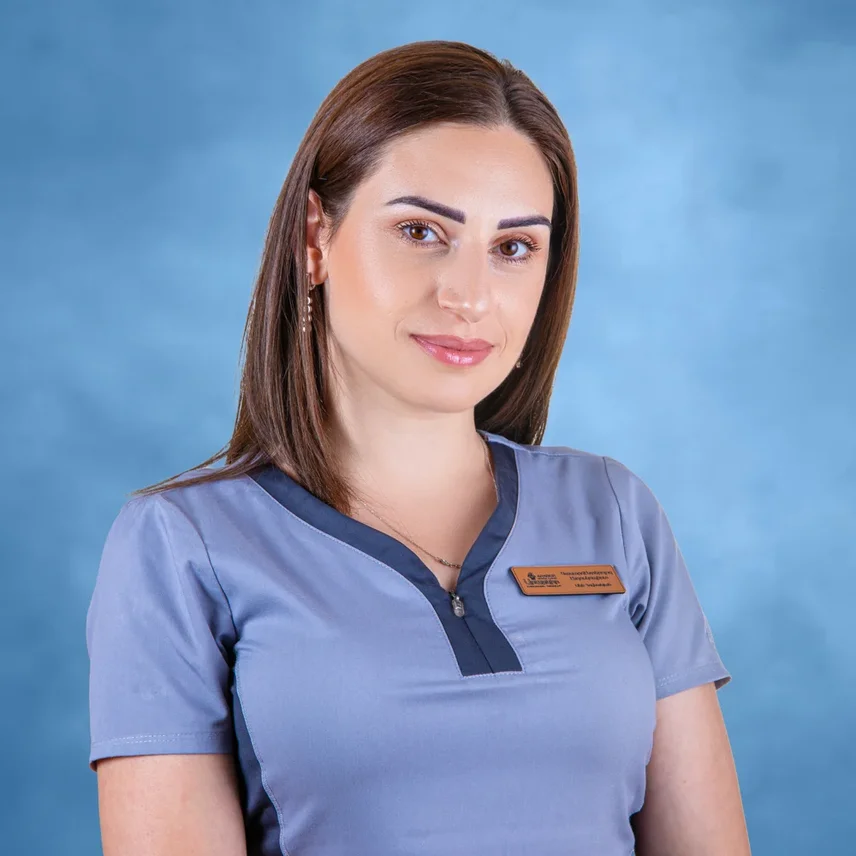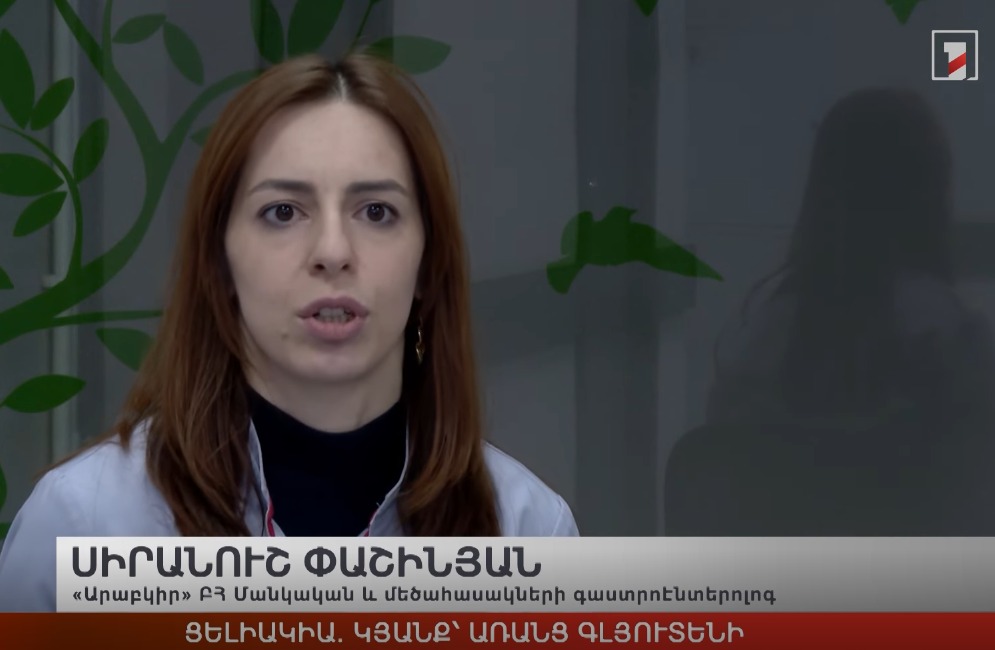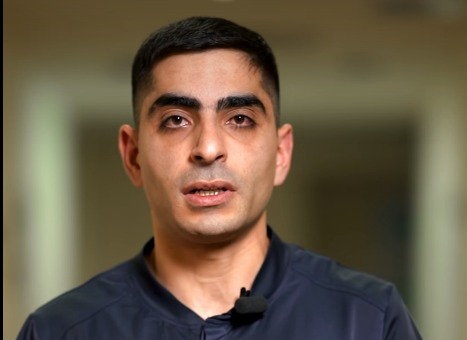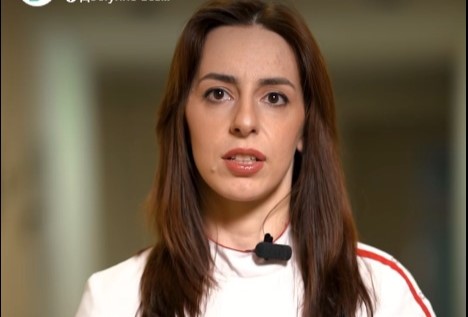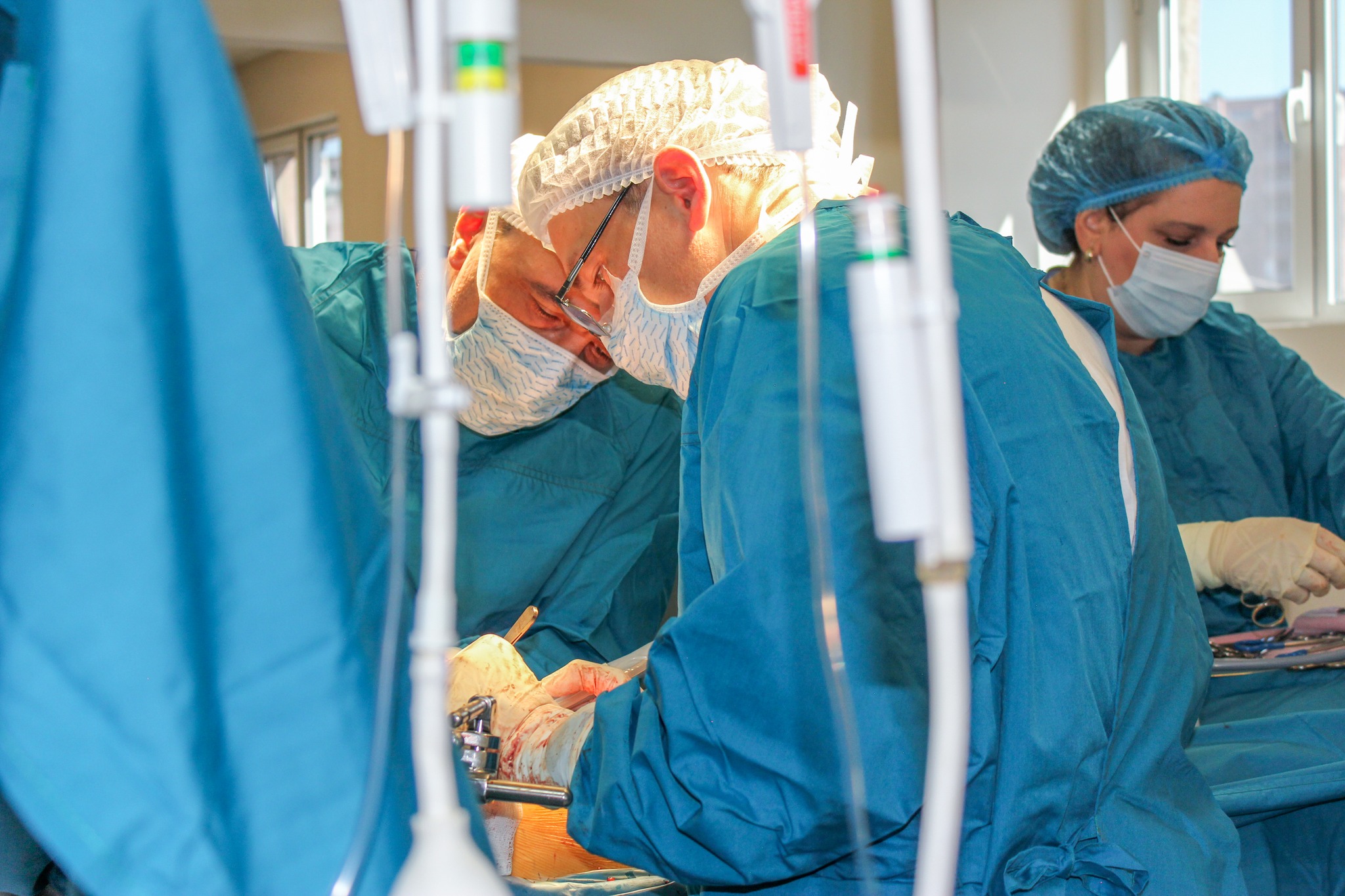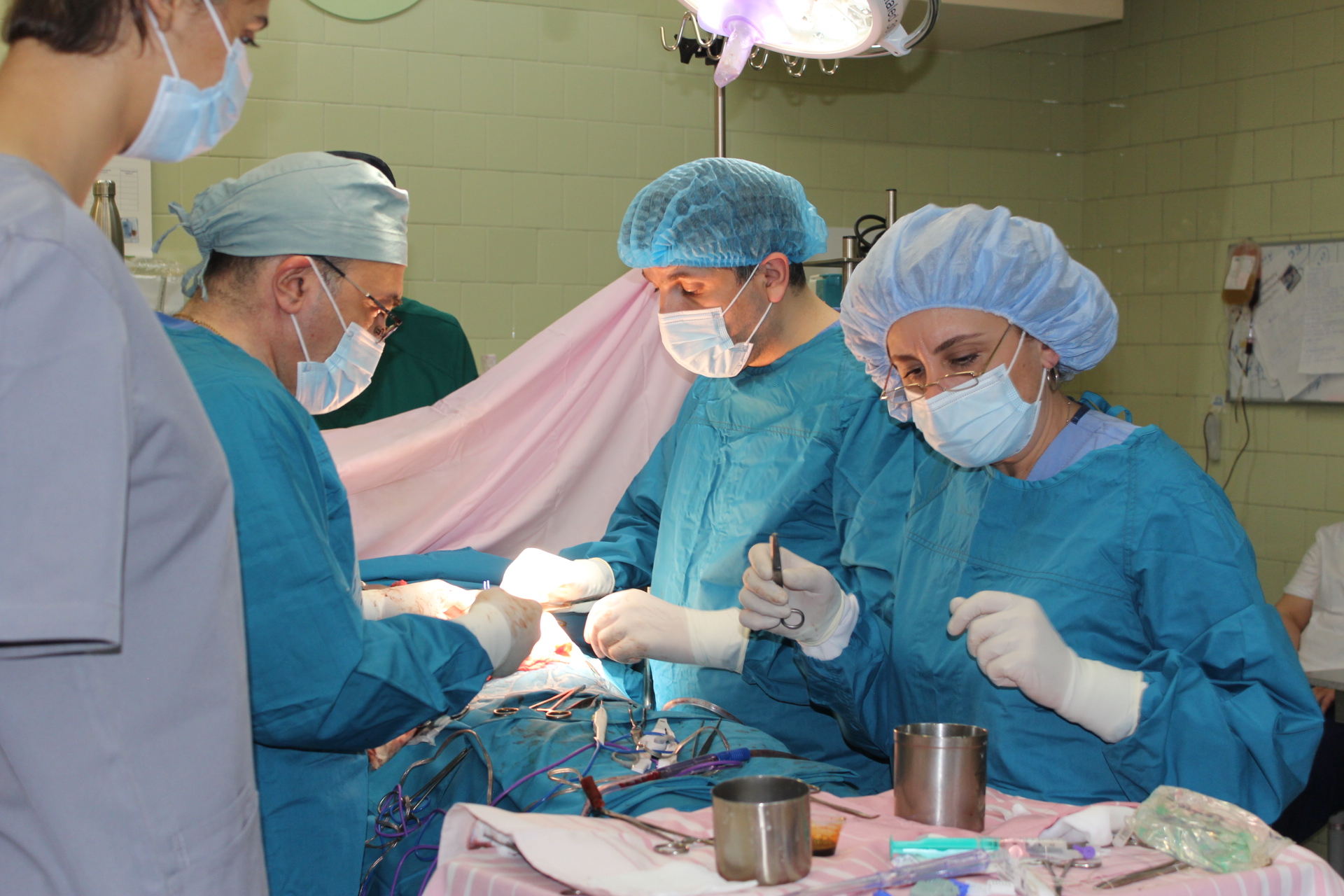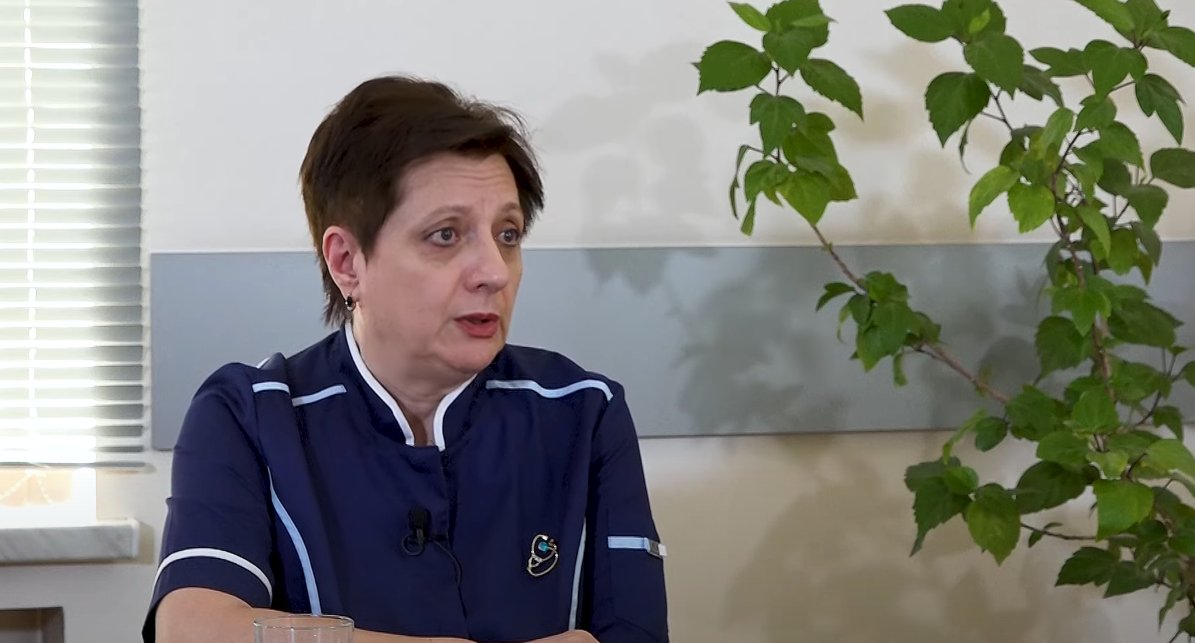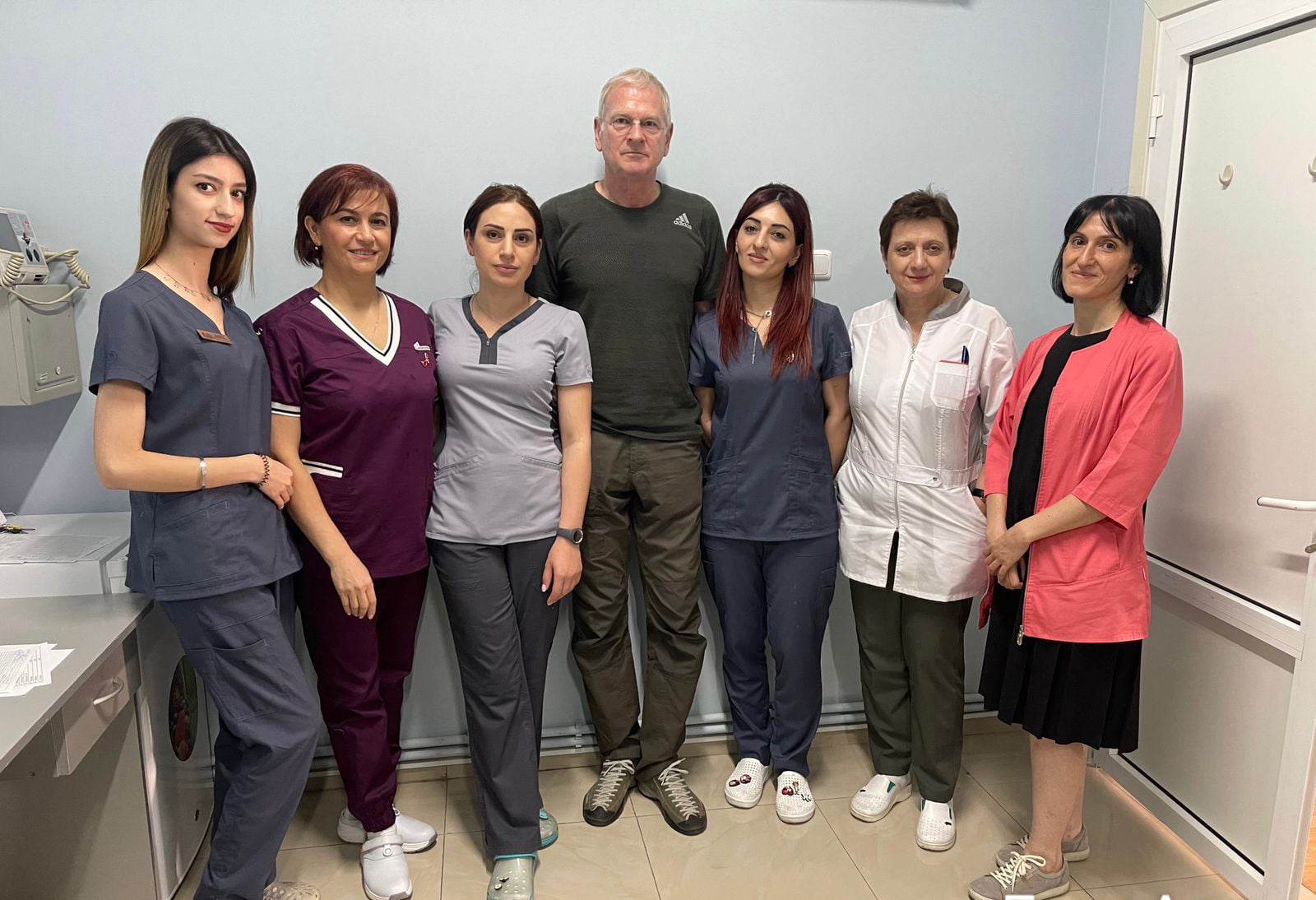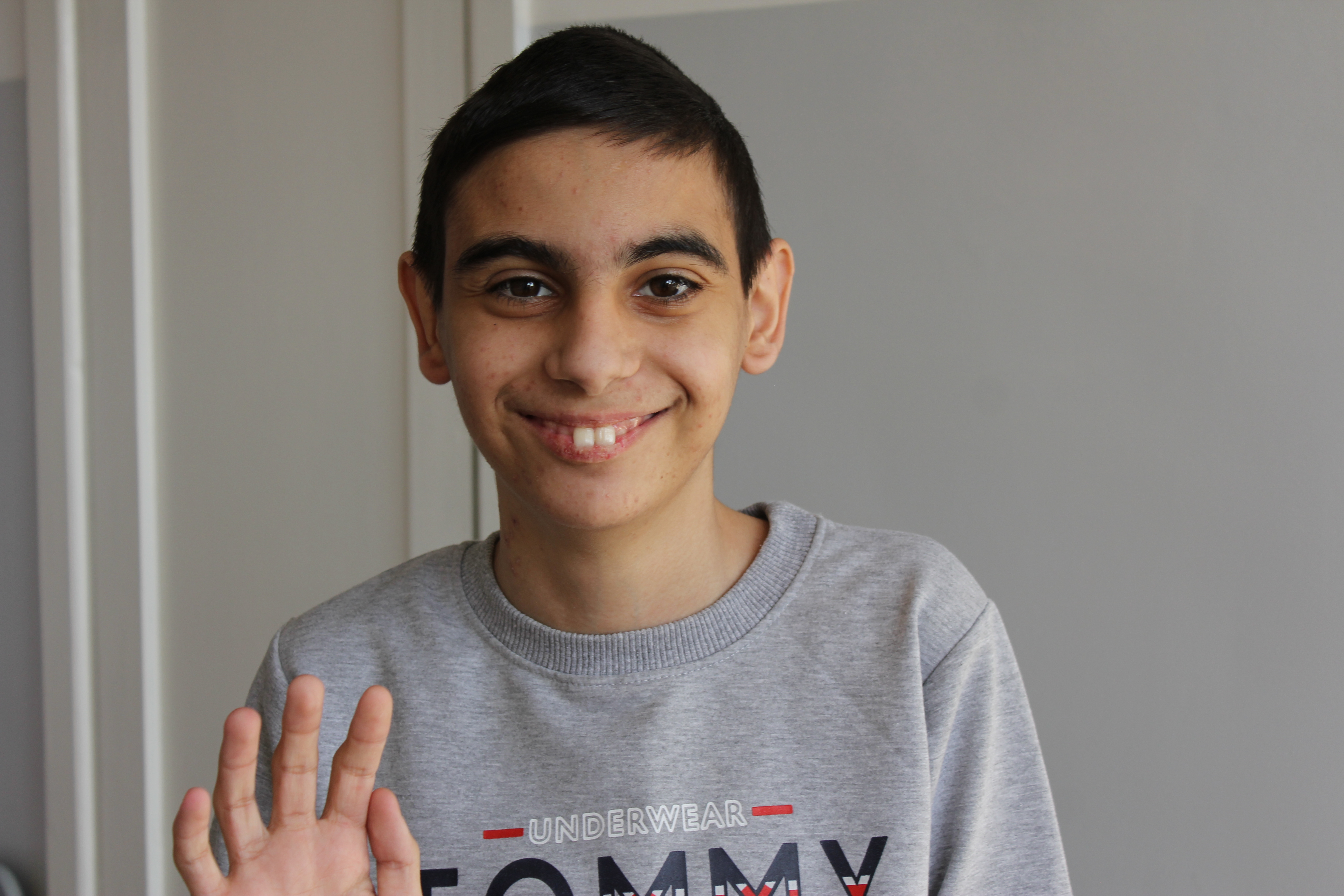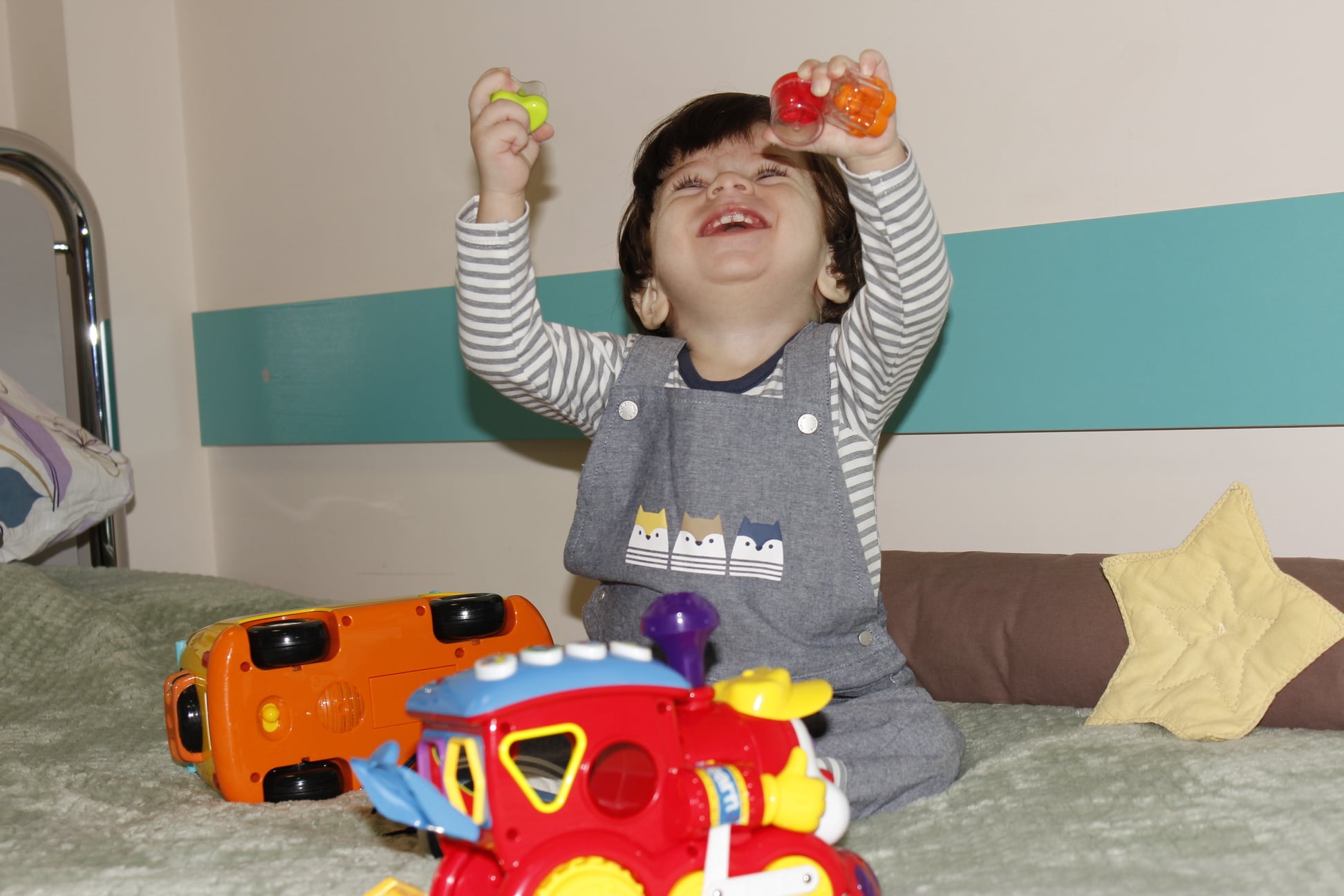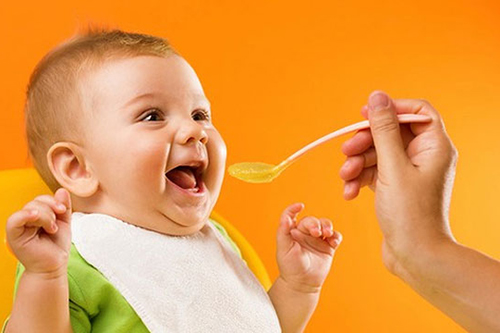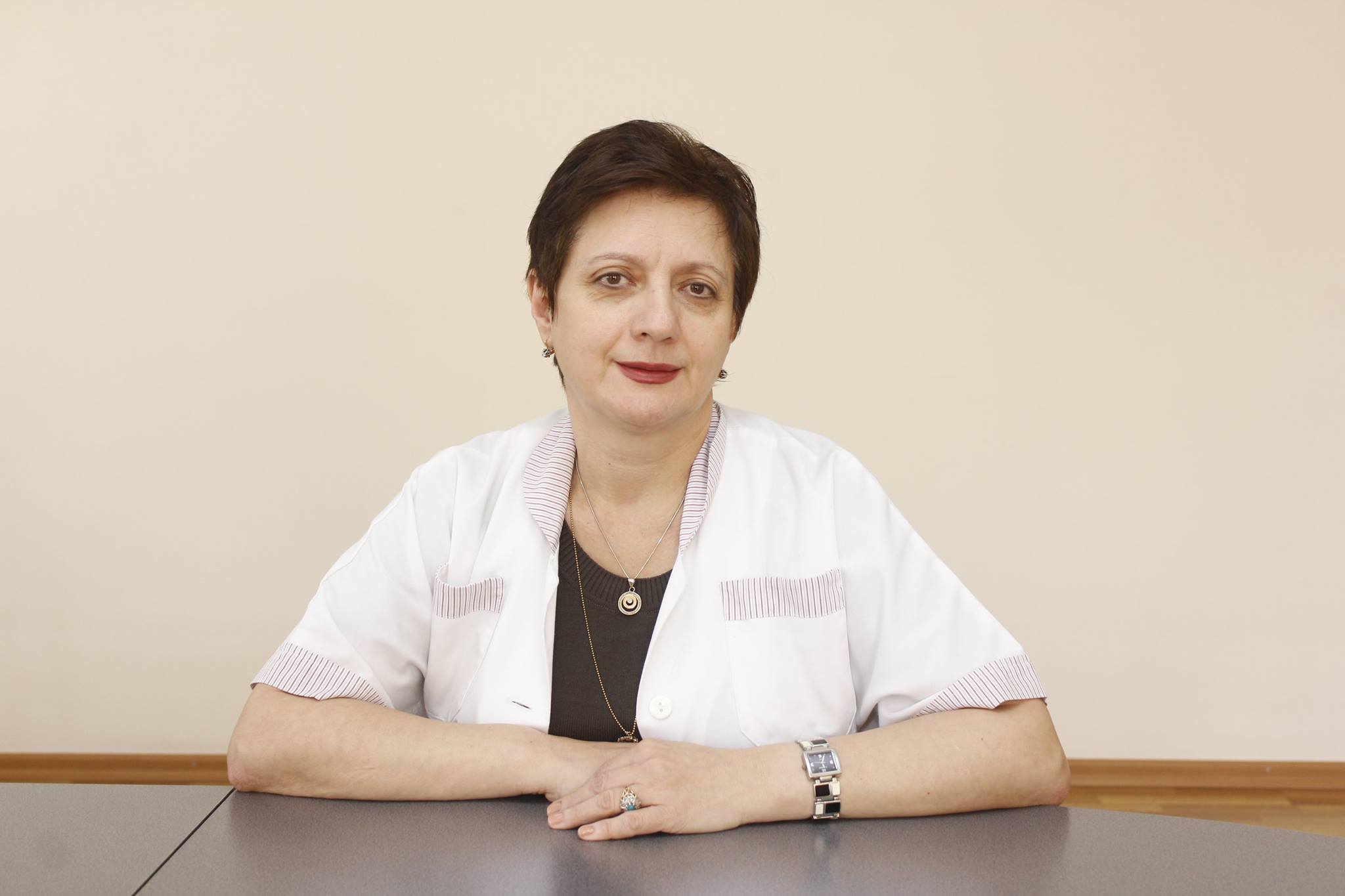Մինչև մեկ տարեկան երեխաների սնուցումը. հարցազրույց Սերգեյ Սարգսյանի հետ
12 June 21
Երեխաների սնունդը մինչև մեկ տարեկանը բնականաբար բավականին տարբեր է մեծահասակի սննդից և գտնվում է ուշադրության կենտրոնում: Առողջ զարգացման համար հավասարակշռված սնունդ է պետք, որը կպարունակի բավարար չափով ածխաջրեր, սպիտակուցներ, ճարպեր, վիտամիններ, միկրոտարրեր: Շատ կարևոր են սպիտակուցները, որոնք կյանքի հիմքն են, մարդու ուղեղի զարգացման ամենակարևոր պայմանը: Դպրոցահասակ երեխայի և մեծահասակի սննդի մեջ տարբերությունը մեծ չէ: Բայց պետք է հաշվի առնել, որ երեխան աճման շրջանում է և նրա սնունդն ավելի հավասարակշռված պետք է լինի՝ հատկապես սպիտակուցներով հարուստ:
Որո՞նք են կրծքով կերակրման առավելությունները:
Կրծքի կաթում կան համապատասխան քանակով և որակով սպիտակուցներ, որոնք անհրաժեշտ են տվյալ տարիքում և հենց տվյալ կազմով: Իսկ կովի կաթը կամ այլ կաթի տեսակներ ունեն իրենց յուրահատկությունները և լիովին չեն համապատասխանում երեխայի սպիտակուցային կառուցվածքի պահանջին, ուստի և համապատասխանաբար՝ նրա ճիշտ աճին:
Կրծքի կաթի ածխաջրերը և ճարպերը ավելի լավ են յուրացվում և ստեղծում համապատասխան պայմաններ երեխայի օրգանիզմի կառուցման համար:
Շատ կարևոր առավելություն է իմուն գործոնների առկայությունը մայրական կաթի մեջ, որոնք պաշտպանում են երեխային մինչև նրա սեփական իմունիտետի ձևավորումը:
Վիտամինները և միկրոտարրերը նույնպես անհրաժեշտ չափով են առկա կրծքի կաթում, բացի վիտամին D-ից:
Կրծքով կերակրելու առավելություններից է նաև կերակրի պատրաստման անհրաժեշտության բացակայությունը:
Կրծքով կերակրման կարևորագույն գործոններից է երեխայի և մոր կապի ստեղծումը, որը նպաստում է երեխայի հոգեբանական ճիշտ զարգացմանը:
Այսպիսով, կյանքի առաջին տարում կամ գոնե 6 ամսվա ընթացքում պարտադիր է կրծքով կերակրումը:
Ինչպիսի՞ն է մինչև 1 տարեկան երեխաների արհեստական սննդի որակը:
Մինչև 1 տարեկան երեխայի ճիշտ սնուցումը կրծքով կերակրումն է: Եթե կրծքի կաթն անբավարար է, երեխան սնվում է ադապտացված կաթնային խառնուրդներով, որոնք կրծքի կաթին առավելագույնս մոտեցված խառնուրդներն են:
Ե՞րբ և ինչպե՞ս է ներմուծվում հավելյալ սնունդը:
Երեխայի նորմալ զարգացումը պահանջում է, որ երեխայի մոտ խնդիրների բացակայության դեպքում 6 ամսականից ավելացվի հավելյալ սնունդ: Իսկ աճի հետ կապված խնդիրների դեպքում հավելյալ սնունդն ավելի վաղ է տրվում՝ 4-6 ամսեկանում:
Ածխաջրատային հավելյալ սնունդը տարբեր բանջարեղենային խյուսերն են, շիլաները: Ապա կարևոր են նաև միսը, ձուն և այլն, որոնք իրենց դերակատարումն ունեն երեխայի ճիշտ զարգացման համար:
Կա՞ն բնածին վիճակներ, որոնց ժամանակ երեխան չի կարողանում ընդունել սննդի որոշ տեսակներ:
Այո, հազվադեպ հանդիպում են նյութափոխանակային դեֆեկտներ, որոնցից է գլուտենային էնտերոպաթիան՝ ցելիակիա կոչված հիվանդությունը, երբ երեխան չի կարող ուտել ցորենի որոշ տեսակներ, ինչը բերում է նրա վիճակի վատացման, ազդում աճի վրա, նաև որոշ դեպքերում կանխորոշում է մտավոր զարգացումը:
Մուկովիսցիդոզի ժամանակ հնարավոր է նաև պանկրեատիկ անբավարարություն, ինչը բերում է ենթաստամոքսային գեղձի ֆերմենտների անբավարարության, նյութերի յուրացման խանգարման: Այս դեպքում բուժումն իրականացվում է ֆերմենտներով:
Ինչպիսի՞ն պետք է լինի հիվանդ երեխայի սնուցումը:
Հիվանդ երեխան պետք է ուտի, չուտելը բերում է օրգանիզմի թուլացման և դիմադրողականության անկման: Իհարկե հիվանդ ժամանակ սնունդն ավելի դյուրամարս պետք է լինի, բայց որոշակի սննդային արժեք հիվանդ երեխան պետք է յուրացնի:
Նախկինում փորլուծության ժամանակ երեխային խորհուրդ չէին տալիս սնվել, բայց պարզվում է, որ աղիների ախտահարված բջիջները, որոնք պայմանավորում են նյութերի ներծծումը, առանց սննդի ավելի դժվար են վերականգնվում:
Կարելի՞ է երեխային կերակրել հարկադրաբար:
Եթե երեխայի ֆիզիկական աճը նորմալ է և մեծ խախտում չկա, պետք է ծնողներին հանգստացնել, որ երեխային շատ չկերակրեն: Իսկ եթե իրոք երեխան չի ուտում, պետք է նախ հասկանալ պատճառը: Երբեմն տեղափոխումը, տատիկի մոտ տանելը փոխում է վիճակը: Երեխային պետք է կերակրել ոչ թե հարկադրաբար, այլ համոզելով:
Որքանո՞վ և ինչպե՞ս են ծնողները տեղեկացված երեխայի սննդի հարցերում:
ՀՀ Առողջապահության նախարարությունը պարբերաբար կազմակերպում է դասընթացներ բժիշկների համար: Հնարավորինս լուսաբանվում են այդ հարցերը: Բժիշկները բացատրում են, պարզաբանում մանկան սնուցման եղանակները, խնդիրները ծնողներին, այդ թեմայով բուկլետներ են տալիս: Բացի դրանից տարբեր կազմակերպությունների կողմից ևս ծնողական դասընթացներ են կազմակերպվում:
Ի՞նչ է կարևոր իմանալ:
Խորհուրդ եմ տալիս հետևել սննդաբանության կարևոր մոտեցումներին՝ ծննդից սկսած: Կան ընդհանուր մոտեցումներ, հրահանգներ, որոնք պետք է ճշտորեն կատարել: Շատ կարևոր է առողջ սննդին հետևելը, սննդի մեջ բանջարեղեն, մրգեր ներառելը:
Սերգեյ Սարգսյան
Մանկաբույժ, «Արաբկիր» բժշկական համալիրին կից՝ Երեխաների և դեռահասների առողջության ինստիտուտի ղեկավար, ՀՀ Առողջապահության նախարարության մանկաբուժության գծով խորհրդատու

 English
English
 Հայերեն
Հայերեն Русский
Русский